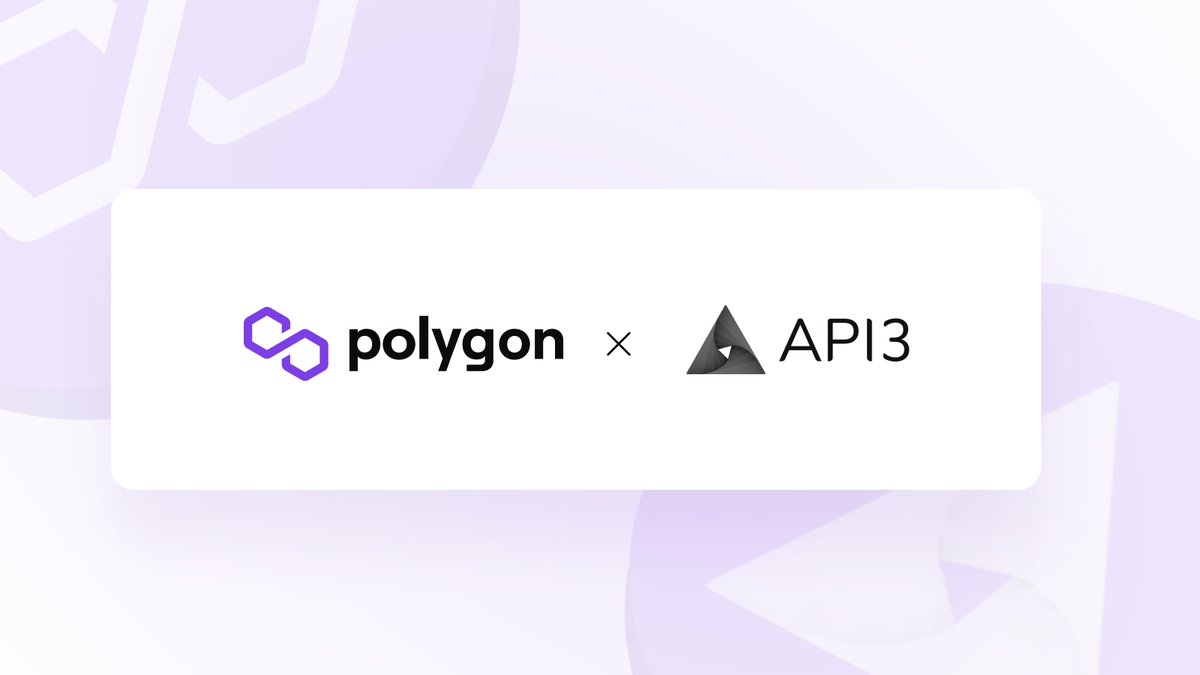
Polygon ID is live 🔥
Today, we’re announcing the launch of the first Polygon ID integration:
@0xPolygonID x @0xPolygonDAO!
Polygon ID is a self-sovereign identity solution powered by ZK cryptography that brings huge potential for DAO governance.
Read on! 🧵
[1/10]
Today, we’re announcing the launch of the first Polygon ID integration:
@0xPolygonID x @0xPolygonDAO!
Polygon ID is a self-sovereign identity solution powered by ZK cryptography that brings huge potential for DAO governance.
Read on! 🧵
[1/10]
#PolygonID flips the Internet's trust model.
Too often, we’re forced to trade data for access to the most basic of services on the web.
Instead, platforms should be asking us about private information we control.
[2/10]


Too often, we’re forced to trade data for access to the most basic of services on the web.
Instead, platforms should be asking us about private information we control.
[2/10]



#PolygonID puts users in complete control of their data.
With ID, you don’t need to selectively disclose any info about yourself. The platforms you use check proofs about your identity.
They never see what was used to generate those proofs.
[3/10]
With ID, you don’t need to selectively disclose any info about yourself. The platforms you use check proofs about your identity.
They never see what was used to generate those proofs.
[3/10]

How Does it work?
ID is built using ZK proofs so you can prove who you say you are without revealing any personal info.
It combines the @identhree protocol and #CircomZK toolkit to create the most powerful application of ZK technology that can run on a mobile device.
[4/10]
ID is built using ZK proofs so you can prove who you say you are without revealing any personal info.
It combines the @identhree protocol and #CircomZK toolkit to create the most powerful application of ZK technology that can run on a mobile device.
[4/10]
DAOs + Polygon ID 📜
🧾 Old blockchain based voting systems link voting behavior to public identifiers like wallets.
#PolygonID lets DAOs allow only those that have received valid attestations to participate in voting. Once verified, activity is completely private.
[5/10]
🧾 Old blockchain based voting systems link voting behavior to public identifiers like wallets.
#PolygonID lets DAOs allow only those that have received valid attestations to participate in voting. Once verified, activity is completely private.
[5/10]
#PolygonID also creates the possibility for fully-private & verifiable reputation building. Anyone adding value to a DAO can be rewarded with claims for their work.
Those claims can then serve as a basis for financial incentive and decision-making powers within the DAO.
[6/10]
Those claims can then serve as a basis for financial incentive and decision-making powers within the DAO.
[6/10]
Live Today📆
An open-source voting module using #PolygonID on @grailxyz. Users can participate in 1 human = 1 vote @0xPolygonDAO governance with ID issued claims.
Coming Soon👀
On-chain recording of votes to make smart contract execution in a ZK environment a reality.
[7/10]
An open-source voting module using #PolygonID on @grailxyz. Users can participate in 1 human = 1 vote @0xPolygonDAO governance with ID issued claims.
Coming Soon👀
On-chain recording of votes to make smart contract execution in a ZK environment a reality.
[7/10]
To summarize, #PolygonID enables:
1️⃣ Anonymous, credentialed voting
2️⃣ Private proof of personhood
3️⃣ Private reputation building
[8/10]
Read more below 👇
bit.ly/Launch-Polygon…
1️⃣ Anonymous, credentialed voting
2️⃣ Private proof of personhood
3️⃣ Private reputation building
[8/10]
Read more below 👇
bit.ly/Launch-Polygon…
Try out #PolygonID today!
➡️ Use the ID App to vote on the @grailxyz roadmap (web only): app.ongrail.xyz/proposal/62b2c…
➡️ Submit your project to the DAO Vote for the Bounty contest (votes cast using Polygon ID): forum.polygon.technology/t/vote-for-the…
Android (Live), iOS (Coming soon, days)
[9/10]
➡️ Use the ID App to vote on the @grailxyz roadmap (web only): app.ongrail.xyz/proposal/62b2c…
➡️ Submit your project to the DAO Vote for the Bounty contest (votes cast using Polygon ID): forum.polygon.technology/t/vote-for-the…
Android (Live), iOS (Coming soon, days)
[9/10]
Also, this is an application of brand new technology.
ZK + DAOs has never been done before!
The governance changes are a work in progress, and we'd love any feedback from the community.
If you have any questions, please reach out: discord.gg/Hy6s2DHZ
[10/10]
ZK + DAOs has never been done before!
The governance changes are a work in progress, and we'd love any feedback from the community.
If you have any questions, please reach out: discord.gg/Hy6s2DHZ
[10/10]
• • •
Missing some Tweet in this thread? You can try to
force a refresh







